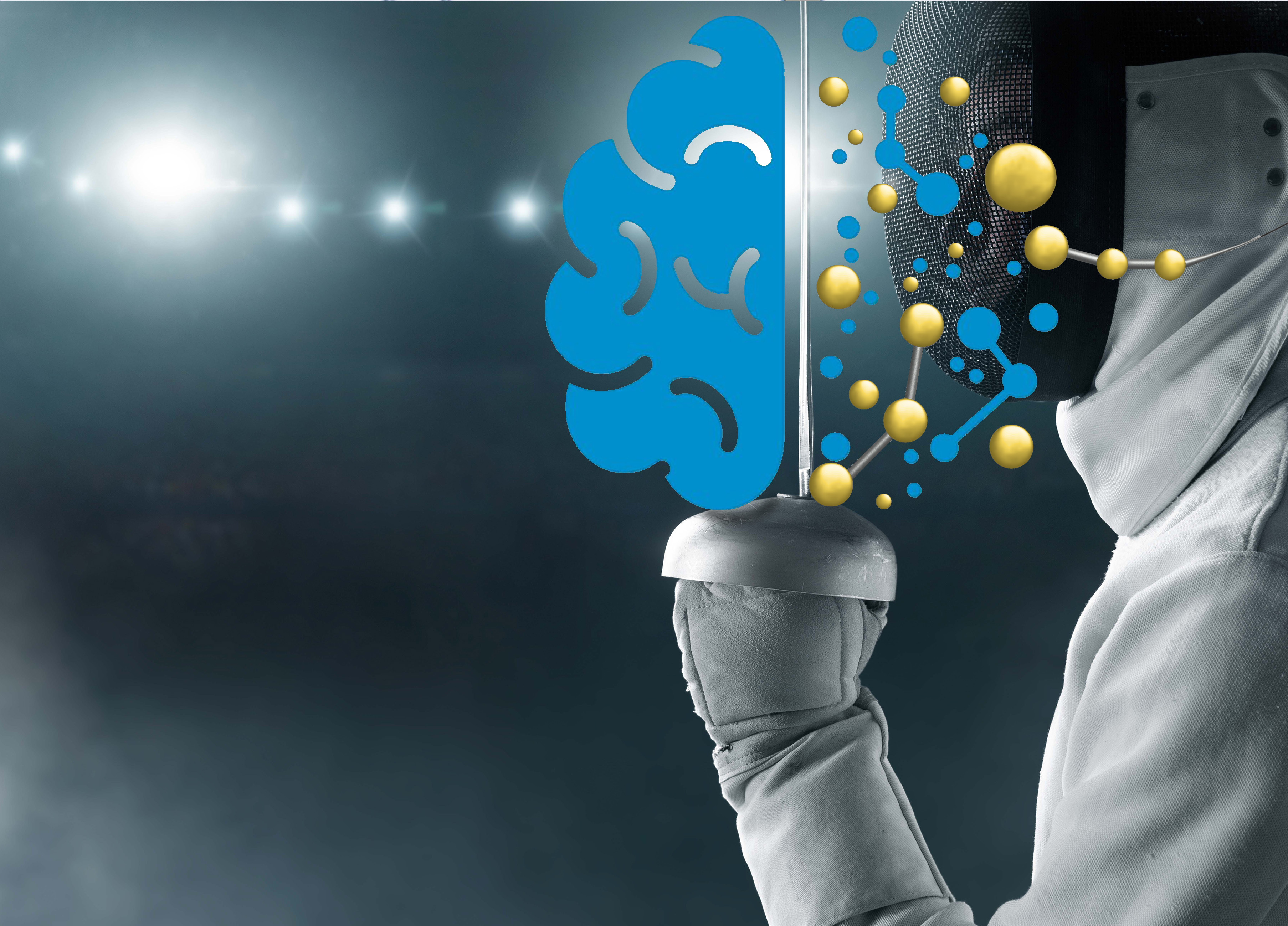TrainYourBrain, un programme de préparation mentale pour optimiser la lucidité et l’engagement en match
Mots-clés :
pleine conscience, engagement, escrime, adhésion, préparation mentaleRésumé
La pleine conscience est une approche de la préparation mentale qui permet aux athlètes de développer leurs habiletés de lucidité, d’acceptation et de re-concentration. Dans le cadre du projet TrainYourBrain, nous avons mis en place un programme de pleine conscience intégré à l’entraînement en escrime de haut niveau. Nous présentons dans cet article les principes et les bénéfices de la pleine conscience pour la performance, ainsi que les résultats préliminaires du programme TrainYourBrain. Nous proposons également des recommandations pour favoriser l’adhésion des athlètes à ce type de programme.
Références
Bernier, M., Thienot, E., Codron, R. et Fournier, J. (2009). Mindfulness and acceptance approaches in sport performance. Journal of clinical sport psychology, 3(4), 320-333. https://doi.org/10.1123/jcsp.3.4.320
Bernier, M., Thienot, E., Pelosse, E. et Fournier, J. (2014). Effects and underlying processes of a mindfulness-based intervention with young elite figure skaters: Two case studies. The Sport Psychologist, 28, 302-315. https://doi.org/10.1123/tsp.2013-0006
Doron, J., Rouault, Q., Jubeau, M. et Bernier, M. (2020). Integrated mindfulness-based intervention: Effects on mindfulness skills, cognitive interference and performance satisfaction of young elite badminton players. Psychology of Sport and Exercise, 47, 101638. https://doi.org/10.1016/j.psychsport.2019.101638
Fournier, J. et Bernier, M. (2023). Mindfulness : pleine conscience pour la performance. 4trainer.
Gardner, F. L. et Moore, Z. E. (2004). A mindfulness-acceptance-commitment-based approach to athletic performance enhancement: Theoretical considerations. Behavior Therapy, 35(4), 707-723.
Goisbault, M., Lienhart, N., Martinent, G. et Doron, J. (2022). An integrated mindfulness and acceptance-based program for young elite female basketball players: Exploratory study of how it works and for whom it works best. Psychology of Sport and Exercise, 60, 102157. https://doi.org/10.1016/j.psychsport.2022.102157
Kabat-Zinn, J. (2012). Où tu vas, tu es. JC Lattès.
Kaufman, K. A., Glass, C. R. et Arnkoff, D. B. (2009). Evaluation of mindfull sport performance enhancement (MSPE): A new approach to promote flow in athletes. Journal of Clinical Sport Psychology, 3(4), 334-356. https://doi.org/10.1123/jcsp.3.4.334
Laukkonen, R., Leggett, J. M. I., Gallagher, R., Biddell, H., Mrazek, A., Slagter, H. A. et Mrazek, M. (2020). The science of mindfulness-based interventions and learning: A review for educators. https://doi.org/10.31231/osf.io/6g9uq
Lochbaum, M., Stoner, E., Hefner, T., Cooper, S., Lane, A. M. et Terry, P. C. (2022). Sport psychology and performance meta-analyses: A systematic review of the literature. PloS one, 17(2), e0263408. https://doi.org/10.1371/journal.pone.0263408
Michaelsen, M. M., Graser, J., Onescheit, M., Tuma, M. P., Werdecker, L., Pieper, D. et Esch, T. (2023). Mindfulness-based and mindfulness-informed interventions at the workplace: a systematic review and meta-regression analysis of RCTs. Mindfulness, 14(6), 1271-1304. https://doi.org/10.1007/s12671-023-02130-7
Myall, K., Montero-Marin, J., Gorczynski, P., Kajee, N., Sheriff, R. S., Bernard, R., et Kuyken, W. (2023). Effect of mindfulness-based programmes on elite athlete mental health: a systematic review and meta-analysis. British Journal of Sports Medicine, 57(2), 99-108. https://doi.org/10.1136/bjsports-2022-105596
Salha, M. B. et Fournier, J. (2022). Les interventions basées sur la pleine conscience et l’acceptation en sport : une revue de la littérature. Staps, 137(3), 99-119. https://doi.org/10.3917/sta.pr1.0044
Tebourski, K., Bernier, M., Ben Salha, M., Souissi, N. et Fournier, J. (2022). Effects of mindfulness for performance programme on actual performance in ecological sport context: two studies in basketball and table tennis. International Journal of Environmental Research and Public Health, 19(19), 12950. https://doi.org/10.3390/ijerph191912950
Wegner, D. M. (1994). Ironic processes of mental control. Psychological Review, 101(1), 34-52. https://doi.org/10.1037/0033-295X.101.1.34

Publiée
Licence
(c) Copyright Marjorie Bernier, Kévin Haffner, Pierre Bagot, Julie Doron (Auteur) 2024

Ce travail est disponible sous licence Creative Commons Attribution - Pas d'Utilisation Commerciale - Pas de Modification 4.0 International.

